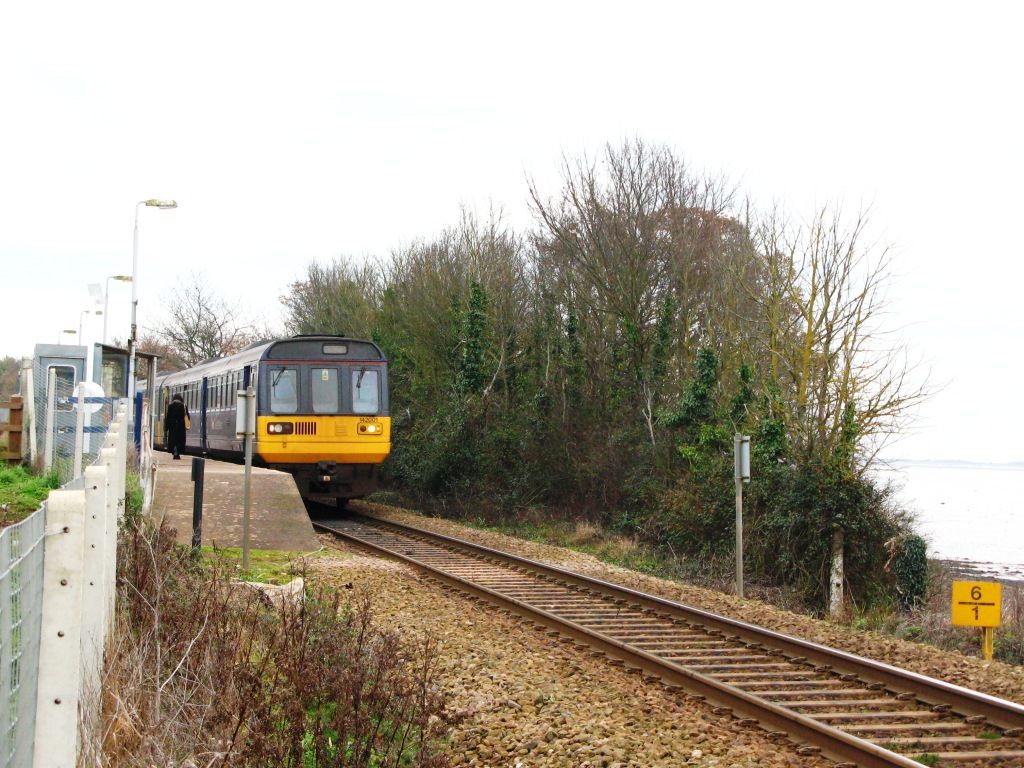Lympstone Commando on:
[Wikipedia]
[Google]
[Amazon]
Lympstone Commando railway station serves the Lympstone Commando Camp on the Avocet Line, a branch line between

Photographs of Lympstone Commando by Owen Dunn
{{DEFAULTSORT:Lympstone Commando Railway Station Railway stations in Devon Railway stations in Great Britain opened in 1976 Railway stations opened by British Rail Private railway stations Railway stations served by Great Western Railway Railway request stops in Great Britain Woodbury, East Devon DfT Category F2 stations
Exeter
Exeter ( ) is a City status in the United Kingdom, cathedral city and the county town of Devon in South West England. It is situated on the River Exe, approximately northeast of Plymouth and southwest of Bristol.
In Roman Britain, Exeter w ...
and Exmouth
Exmouth is a harbor, port town, civil parishes in England, civil parish and seaside resort situated on the east bank of the mouth of the River Exe, southeast of Exeter.
In 2011 it had a population of 34,432, making Exmouth the List of settl ...
in Devon
Devon ( ; historically also known as Devonshire , ) is a ceremonial county in South West England. It is bordered by the Bristol Channel to the north, Somerset and Dorset to the east, the English Channel to the south, and Cornwall to the west ...
, England.
Whilst signs on the station platform state that passengers alighting must have business with the Camp, this is no longer true and members of the general public can access the station via a public footpath.
History
The station was opened on 3 May 1976 by British Rail. This caused some confusion with the older Lympstone railway station, which was consequently renamed ''Lympstone Village''. It was built using cast platform sections recovered from Weston Milton railway station, where the track had been singled and one platform was no longer required. For many years, troop trains were a feature of its operation about three times each year. The trains were operated with a locomotive at each end, as there is no way to run around a train south of Topsham; the leading locomotive on arrival was dragged back to Exeter Central where it was detached. The trains were considerably longer than the platform and loading the passengers was a slow operation, as they had to make their way through the train from the centre coaches. A similar operation today is difficult to arrange, as the regular timetabled passenger service is much more intensive than in the 1980s. In November 2020, the platform was extended by to make it long.Description
The station is situated on the banks of the estuary of the River Exe. It consists of a single platform, which is on the left of trains arriving from Exeter. On 28 May 2010, a section of the Exe Estuary Trail opened between Lympstone and Exton; this runs between the platform and the entrance to the camp. As a result, the public can now access the station, although the sign on the platform continues to state that "persons alighting here must have business with the camp." The Ministry of Defence have accepted that the station is the property of Network Rail and, as such, they cannot prohibit members of the public from using the station; however, people wishing to take photographs from the platform should inform the guard room at the Commando Training Centre beforehand.Services

Great Western Railway
The Great Western Railway (GWR) was a History of rail transport in Great Britain, British railway company that linked London with the southwest, west and West Midlands (region), West Midlands of England and most of Wales. It was founded in 1833, ...
operate all trains serving the station. Trains stop here on a generally hourly basis between and , via ; however, all services call here on Saturdays.
It is a request stop, meaning that passengers wishing to alight must tell the conductor that they wish to do so and those waiting to join must signal clearly to the driver as the train approaches.
References
External links
Photographs of Lympstone Commando by Owen Dunn
{{DEFAULTSORT:Lympstone Commando Railway Station Railway stations in Devon Railway stations in Great Britain opened in 1976 Railway stations opened by British Rail Private railway stations Railway stations served by Great Western Railway Railway request stops in Great Britain Woodbury, East Devon DfT Category F2 stations